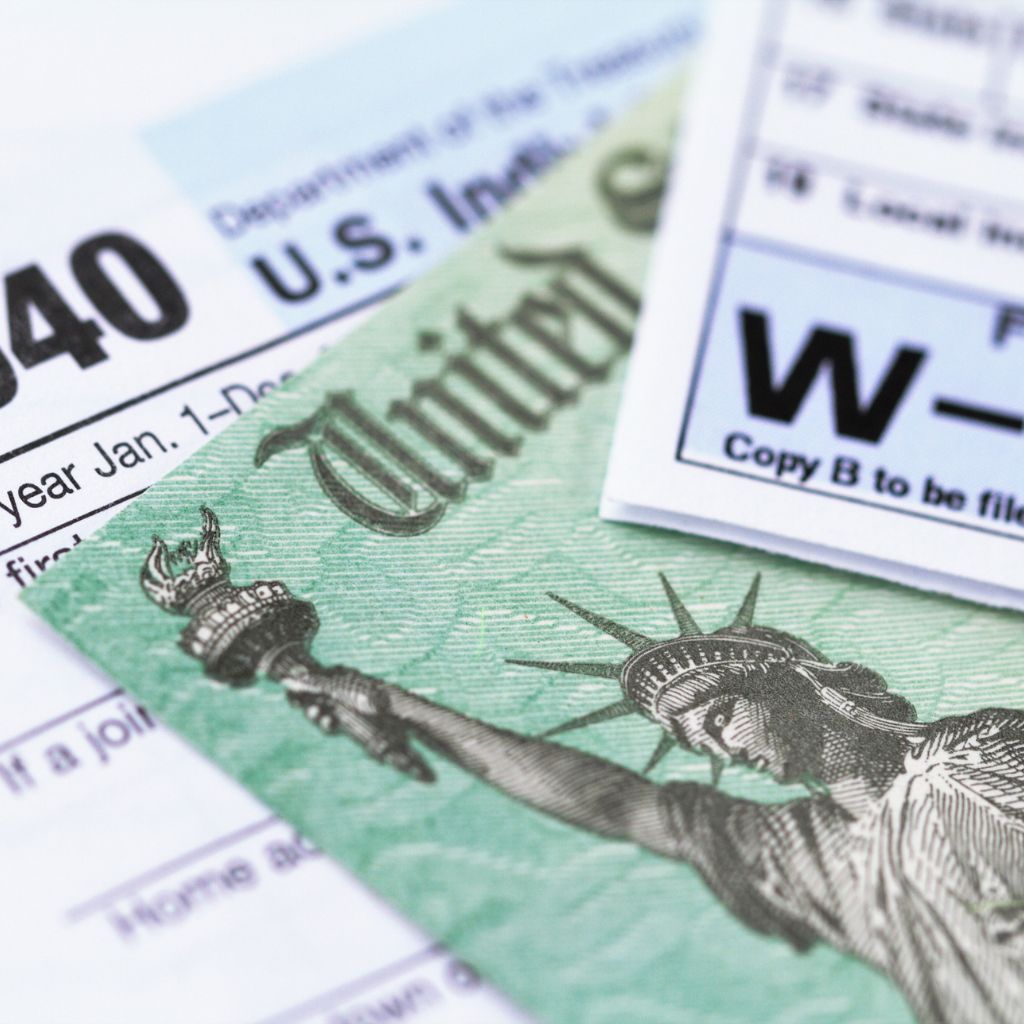As a military Veteran, you may want to explore tax benefits for the 2024 tax filing season. Tax benefits are provisions in the tax code that reduce the amount of tax owed, either by directly lowering a taxpayer’s tax liability or by offering deductions, exemptions, or credits that reduce taxable income.
As part of our commitment to supporting Veterans, we’ve gathered resources and information on tax breaks, benefits, and programs that may be available to you.
Important: The information below is an introduction to potential tax benefits for U.S. Veterans and is not intended as legal or tax advice. Tax laws and benefits can vary widely based on individual circumstances. Consult with a qualified tax professional in your state for advice tailored to your specific financial situation.
When Does Tax Filing Start?
Here’s a quick timeline for the 2024 tax season.
- January 12: IRS Free File opens for qualified taxpayers (any taxpayer or family with Adjusted Gross Income of $79,000 or less in 2023). Participating IRS Free File software companies begin accepting completed tax returns, holding them until electronic filing begins.
- January 29: Filing season start date for individual returns.
- April 15: Due date for filing an individual tax return or to request an extension for most of the U.S.
- April 17: Due date for Maine and Massachusetts residents.
- October 15: Due date for those who filed an extension.
Tax Benefits for Veterans Only
The following tax benefits are available for qualifying U.S. veterans.
Tax-free income and benefits for Veterans
The IRS classifies certain Veteran-related income administered by the Department of Veterans Affairs (VA) as nontaxable. They may include:
- Education and training
- Disability compensation and pension payments for disabilities paid to Veterans or their families
- Eligible grants for housing or motor vehicles for disabled Veterans
- Veterans’ insurance proceeds and dividends paid to Veterans or their beneficiaries
- Interest on insurance dividends left on deposit with the VA
- Benefits under a dependent-care assistance program
- Death gratuity paid to a survivor of a member of the U.S. Armed Forces who died after September 10, 2001
- Payments made under the compensated work therapy program
- Bonus payment by a state or political subdivision because of service in a combat zone
More info:
- IRS: Publication 525, Taxable and Nontaxable Income
- IRS: Tax Exclusion for Veterans Education Benefits
- IRS: Publication 970 (2022), Tax Benefits for Education
State-level tax benefits for Veterans
Each state has laws regarding tax breaks and tax benefits for Veterans which may include housing assistance, financial assistance, education benefits, exemption from property taxes, and more. Speak with a tax professional in your state to find out which tax benefits are available to you at the state level.
See also: Complete Listing of U.S. State Dept. of Revenue Websites
Tax Benefits for Disabled Veterans
The following tax breaks and benefits are available to Veterans with a disability rating from the VA.
Tax-free income and benefits for disabled Veterans
Certain types of income and benefits for disabled Veterans may not be taxable, according to the IRS. These can include disability compensation, pension payments, grants for accessible homes and vehicles, dependent-care assistance, and payments from work therapy programs. However, it’s important to consult a tax professional to accurately determine the taxability of any benefits you receive.
More info:
- VA: Disability Compensation
- VA: Combat-Related Special Compensation
- VA: Aid and Attendance Benefits and Housebound Allowance
- VA: Information for Veterans – Compensated Work Therapy
- IRS: About Publication 525, Taxable and Nontaxable Income
Federal tax refund for lump sum disability severance payment
If you received a lump sum severance payment after being discharged for medical disability and you paid tax on that lump sum, you may be eligible for a refund of taxes paid. Speak with a tax professional for help.
More Info:
- IRS: About Form 1040-X, Amended U.S. Individual Income Tax Return
- IRS: Combat-Injured Veterans Tax Fairness Act Claim Information Available
Federal tax refund for eligible disabled Veterans
Certain Veterans may be able to get a federal tax refund if either the VA increased the percentage of disability or the VA granted Combat-Related Special Compensation after an award for Concurrent Retirement and Disability. To claim this benefit, you may need to file an amended return for a previous tax year. Speak with a tax professional to learn more.
More info:
- IRS: Special tax considerations for Veterans
- VA: Combat-Related Special Compensation
- IRS: About Form 1040-X, Amended U.S. Individual Income Tax Return
Credit for the Elderly or Disabled
The IRS offers a tax credit for the elderly or disabled. This credit is not exclusive to disabled Veterans but is available to anyone who qualifies. Those who qualify to claim this credit would file a Schedule R along with their Form 1040 or 1040-SR.
More info:
- IRS: Publication 524, Credit for the Elderly or the Disabled
- IRS: About Schedule R (Form 1040), Credit for the Elderly or the Disabled
Other Tax Benefits for Eligible Veterans
The following tax benefits are not exclusive to U.S. Veterans but may be available to some taxpayers.
Earned Income Tax Credit (EITC, or EIC)
The EITC is a tax credit for potentially reducing taxes owed or increasing refunds, and it’s accessible to eligible individuals, including Veterans. For the 2023 tax year, eligibility criteria involve earning below a certain income threshold, with Veterans’ benefits not counting as earned income for this limit. To claim the EITC, it’s necessary to include it in your Form 1040 or 1040-SR filing. If you have qualifying children, you should also complete a Schedule EIC.
More info:
- IRS: EITC Assistant – see if you qualify
- IRS: About Schedule EIC
- IRS: Publication 596 (2022), Earned Income Credit (EIC)
Note: Always confirm your eligibility with a tax professional or the IRS directly.
Child Tax Credit
The Child Tax Credit might help reduce tax liability or increase refunds for those with qualifying dependents.
More info:
- IRS: Child Tax Credit
- IRS: Interactive Tax Assistant – to see if your child qualifies
- IRS: About Schedule 8812 (Form 1040), Credits for Qualifying Children and Other Dependents
Extension for filing federal tax return
All taxpayers are eligible for an automatic six-month extension on filing. An extension does not grant more time to pay any taxes owed, it simply provides more time to send in a completed tax return. Taxes owed and not paid by the IRS 2024 filing deadline will accrue interest and the taxpayer may be subject to penalties. To file for an automatic extension, taxpayers can fill out IRS Form 4868, either online or by mail.
More info:
- IRS: Extension of Time to File Your Tax Return
- IRS: About Form 4868
Note: Consult a tax professional or the IRS website for the most current information and personalized advice, especially regarding any potential penalties or interest on taxes owed after the original due date.
Helpful Resources and Tools
Important Websites
You may want to bookmark these important websites until tax season is over:
- IRS website
- IRS Publication 553: Highlights for Military and Government Personnel:
- VA website
- VA Benefits Explorer
- Veterans Affairs and ID.me – use your ID.me login to access VA services
- IRS Online Account – Access your secure IRS login or create an account
Free Help Filing Taxes
Check out the following resources to get your tax return filed and your questions answered by professionals:
- MilTax e-filing software from the Department of Defense for qualifying Veterans. See eligibility requirements
- IRS Free File: Guided tax preparation for qualifying taxpayers or free fillable forms available to all taxpayers
- IRS VITA: The IRS’s Volunteer Income Tax Assistance (VITA) program provides free basic tax return services to eligible taxpayers including persons with disabilities
Get the Information and the Help You Need
Take advantage of the tax benefits for Veterans and disabled Veterans, including tax credits for current and prior years and free tax preparation services, listed above. Speak to a tax professional to answer any questions or simply to look over your return before you file so you’re sure not to miss any benefits available to you.


